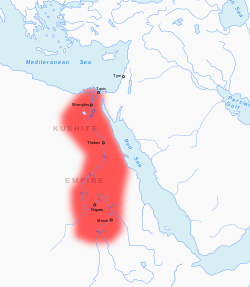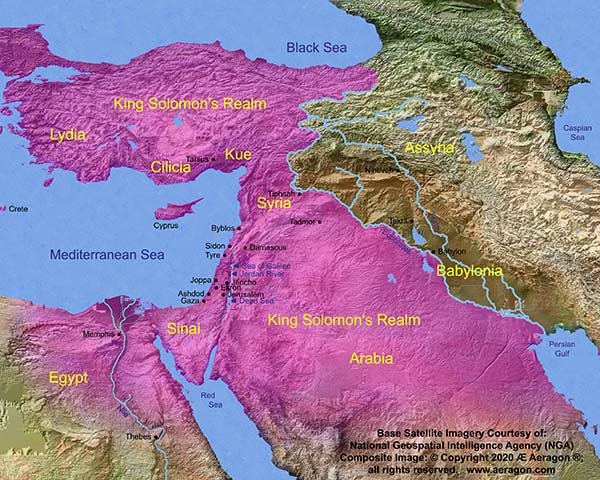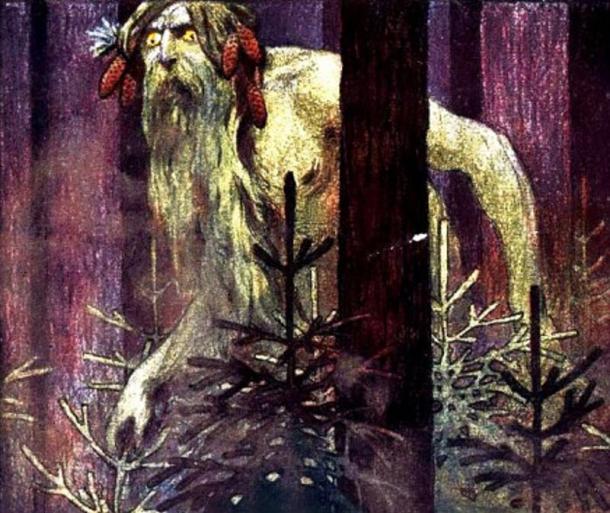The prophet Isaiah made many prophecies and is generally regarded as the major link between the Old Testament of the Bible and the revelations in the New Testament
Talking in TLR Voodoo thread here got me thinking about what did happen to those in Egypt who undoubtedly had ties to Israel during this time frame culturally and religiously
Isaiah 19
the time of Isaiah would be 800-700 BCE
Twenty-fifth Dynasty of Egypt - Wikipedia

Battle of Pelusium (525 BC) - Wikipedia
Twenty-seventh Dynasty of Egypt - Wikipedia
From this point onward Egypt has largely belonged to foreigners (Persians, Greeks, Romans, and now Arabic Muslims today)
City of Destruction/City of the Sun
Heliopolis (ancient Egypt) - Wikipedia
Most know that the babylonians and assyrians scattered Israel during this time...but did it also include Egypt? note the biblical kingdom of solomon (970 BC)
note the biblical kingdom of solomon (970 BC)

Deportations under the Achemenid
DEPORTATIONS – Encyclopaedia Iranica
Isaiah Chapter 19
Note the missing deity Ptah from the plagues of egypt during exodus
...did it all get wiped over via Persians and Greeks something stinks
something stinks
while the hebrew bible has it's own explanation of the tetragrammaton YHWH (I am that I am) I thought about the name Yahweh phonetically and discovered something interesting if you separate the words but use Egyptian definitions for each word
pronunciation justification:
jꜣḫw
ꜣḫw
it would read like this:
jꜣḫwḥḥ
YAKH-HU-HEH:
Iah - Wikipedia
Moon, Light of the New Moon
Hu (mythology) - Wikipedia
spoken word. He personifies the authority of utterance.
Heh (god) - Wikipedia
Flood, Infinity/eternity, watery chaos
"Divine Utterance of Eternity"
then compare those descriptions to Ptah who had largely been forgotten by most of the kingdom
Ptah - Wikipedia



Talking in TLR Voodoo thread here got me thinking about what did happen to those in Egypt who undoubtedly had ties to Israel during this time frame culturally and religiously
Isaiah 19
1 Behold, the Lord rides on a swift cloud,
And will come into Egypt;
The idols of Egypt will totter at His presence,
And the heart of Egypt will melt in its midst.
2 “I will set Egyptians against Egyptians;
Everyone will fight against his brother,
And everyone against his neighbor,
City against city, kingdom against kingdom.
3 The spirit of Egypt will fail in its midst;
I will destroy their counsel,
And they will consult the idols and the charmers,
The mediums and the sorcerers.
4 And the Egyptians I will give
Into the hand of a cruel master,
And a fierce king will rule over them,”
Says the Lord, the Lord of hosts.
5 The waters will fail from the sea,
And the river will be wasted and dried up.
6 The rivers will turn foul;
The brooks of defense will be emptied and dried up;
The reeds and rushes will wither.
7 The papyrus reeds by [c]the River, by the mouth of the River,
And everything sown by the River,
Will wither, be driven away, and be no more.
8 The fishermen also will mourn;
All those will lament who cast hooks into the River,
And they will languish who spread nets on the waters.
9 Moreover those who work in fine flax
And those who weave fine fabric will be ashamed;
10 And its foundations will be broken.
All who make wages will be troubled of soul.
11 Surely the princes of Zoan are fools;
Pharaoh’s wise counselors give foolish counsel.
How do you say to Pharaoh, “I am the son of the wise,
The son of ancient kings?”
12 Where are they?
Where are your wise men?
Let them tell you now,
And let them know what the Lord of hosts has purposed against Egypt.
13 The princes of Zoan have become fools;
The princes of [d]Noph are deceived;
They have also [e]deluded Egypt,
Those who are the [f]mainstay of its tribes.
14 The Lord has mingled a perverse spirit in her midst;
And they have caused Egypt to err in all her work,
As a drunken man staggers in his vomit.
15 Neither will there be any work for Egypt,
Which the head or tail,
Palm branch or bulrush, may do.
16 In that day Egypt will be like women, and will be afraid and fear because of the waving of the hand of the Lord of hosts, which He waves over it.
17 And the land of Judah will be a terror to Egypt; everyone who makes mention of it will be afraid in himself, because of the counsel of the Lord of hosts which He has determined against it.
18 In that day five cities in the land of Egypt will speak the language of Canaan and swear by the Lord of hosts; one will be called the City of [g]Destruction.
19 In that day there will be an altar to the Lord in the midst of the land of Egypt, and a pillar to the Lord at its border.
20 And it will be for a sign and for a witness to the Lord of hosts in the land of Egypt; for they will cry to the Lord because of the oppressors, and He will send them a Savior and a Mighty One, and He will deliver them.
21 Then the Lord will be known to Egypt, and the Egyptians will know the Lord in that day, and will make sacrifice and offering; yes, they will make a vow to the Lord and perform it.
22 And the Lord will strike Egypt, He will strike and heal it; they will return to the Lord, and He will be entreated by them and heal them.
23 In that day there will be a highway from Egypt to Assyria, and the Assyrian will come into Egypt and the Egyptian into Assyria, and the Egyptians will serve with the Assyrians.
24 In that day Israel will be one of three with Egypt and Assyria—a blessing in the midst of the land,
25 whom the Lord of hosts shall bless, saying, “Blessed is Egypt My people, and Assyria the work of My hands, and Israel My inheritance.”
the time of Isaiah would be 800-700 BCE

Twenty-fifth Dynasty of Egypt - Wikipedia

Battle of Pelusium (525 BC) - Wikipedia
Twenty-seventh Dynasty of Egypt - Wikipedia
From this point onward Egypt has largely belonged to foreigners (Persians, Greeks, Romans, and now Arabic Muslims today)
City of Destruction/City of the Sun
Heliopolis (ancient Egypt) - Wikipedia
Most know that the babylonians and assyrians scattered Israel during this time...but did it also include Egypt?
 note the biblical kingdom of solomon (970 BC)
note the biblical kingdom of solomon (970 BC)
Deportations under the Achemenid
DEPORTATIONS – Encyclopaedia Iranica
IN THE ACHAEMENID PERIOD
The practice of uprooting whole communities and transplanting them in distant lands is well attested in ancient times, particularly in Mesopotamia (Oded, pp. 33 ff.). The Achaemenids adopted the same practice whenever a particular people was too troublesome or revolted after subjugation (Grosso) and occasionally even when craftsmen of an industrious nation fell into their hands. Cambyses deported to Susa 6,000 Egyptians together with their king, Amyrtaius, and many artisans
Mass deportations were in fact an effective means of procuring craftsmen and unskilled labor. Darius I mentioned (DSf 45-55; Kent, Old Persian, pp. 143) the use of Median, Egyptian, Babylonian, and Sardian artisans in the construction of his palace at Susa. There is no record that these deportees were ill treated. They were given land and allowed to preserve their languages and cultures, but they could not travel freely and were subject to taxation and the corvée (Herodotus, 2.204, 6.119; Diodorus, 17.110; cf. Narain, pp. 2-5). Their precise legal status and degree of dependence in this early period are not always clear, however.
Isaiah Chapter 19
Note the missing deity Ptah from the plagues of egypt during exodus
most people when they think of egypt the imagine the sun-worshipping pantheon associated with Ra. Yet there is an entirely different history that may have preceded this sun worshipii. At the time of the Exodus, when the Pharaoh of Egypt would not release the children of Israel from their captivity, the LORD also made the idols of Egypt to totter at His presence. He directed each of the plagues against a particular idol of Egypt.
· He knocked over the god Khnum, the guardian of the Nile, the god Hapi, the spirit of the Nile, and the god Osiris (who had the Nile as his bloodstream), when the waters were turned to blood.
· He knocked over the goddess Heqt, the frog-goddess of fertility, with the plague of frogs.
· He knocked over the goddess Hathor, a cow-like mother goddess, with the plague on livestock.
· He knocked over the god Imhotep, the god of medicine, with the plague of boils.
· He knocked over the god Nut, the sky goddess, with the plague of hail.
· He knocked over the whole system of Egyptian worship of their gods with loathsome lice and swarms of insects.
· He knocked over the god Seth, thought to be the protector of crops, with the plague of locusts.
· He knocked over the god Ra, thought to be the sun god, with the plague of darkness.
· He knocked over Osiris, the Egyptian god thought to be the giver of life, and the supposed deity of Pharaoh himself, with the plague against the firstborn. God made all the idols of Egypt to totter at His presence before, and Isaiah tells us He will do it again.
...did it all get wiped over via Persians and Greeks
 something stinks
something stinkswhile the hebrew bible has it's own explanation of the tetragrammaton YHWH (I am that I am) I thought about the name Yahweh phonetically and discovered something interesting if you separate the words but use Egyptian definitions for each word
pronunciation justification:
jꜣḫw
Pronunciation[edit]
reconstructed) IPA(key): /ˈjaʀχaw/ → /ˈjaʀχaw/ → /joːχ/
Noun[edit]
- (modern Egyptological) IPA(key): /iɑxuː/
- Conventional anglicization: iakhu





m
ꜣḫw
Pronunciation[edit]
reconstructed) IPA(key): /ˈʀaːχaw/ → /ˈʀaːχaw/ → /ˈʔaːχəʔ/ → /ˈʔoːχ/
Noun[edit]
- (modern Egyptological) IPA(key): /ɑxuː/
- Conventional anglicization: akhu
Alternative forms
- effectiveness, usefulness, capability
- skills, expertise magical power or efficacy quotations ▼
Pronunciation[edit]
Noun[edit]
- (modern Egyptological) IPA(key): /ɑxuː/
- Conventional anglicization: akhu




m
- Middle Kingdom and later form of of jꜣḫw (“sunlight, radiance, divine epithet”)
it would read like this:
jꜣḫwḥḥ
YAKH-HU-HEH:
Iah - Wikipedia
Moon, Light of the New Moon
Hu (mythology) - Wikipedia
spoken word. He personifies the authority of utterance.
Heh (god) - Wikipedia
Flood, Infinity/eternity, watery chaos
"Divine Utterance of Eternity"
then compare those descriptions to Ptah who had largely been forgotten by most of the kingdom
Ptah - Wikipedia
From Egyptian ptḥ meaning "opener, creator". Ptah was an Egyptian god associated with creation and the arts.
Ptah is an Egyptian creator god who existed before all other things and, by his will, thought the world into existence. It was first conceived by Thought, and realized by the Word: Ptah conceives the world by the thought of his heart and gives life through the magic of his Word. That which Ptah commanded was created, with which the constituents of nature, fauna, and flora, are contained.



Last edited:
 was it brought to them? was the story of Akhenaten not what we think it was?
was it brought to them? was the story of Akhenaten not what we think it was? chileans...hitler may have really escaped there afterall
chileans...hitler may have really escaped there afterall








